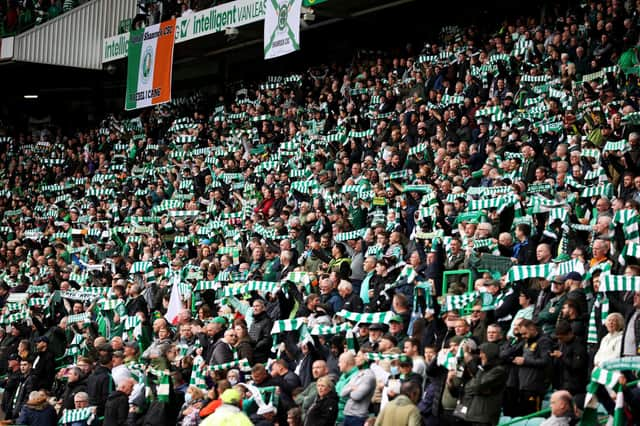Why vaccine passports are small price to pay for Scottish football normality


It’s been as if we aren’t living with markedly rising cases of a deadly Covid-19 infection and its variants that closed down the entire world for long periods across the past year-and-a-half. Even if public address systems continually implore people to do so, ever fewer bother to wear masks at any point. The only reliably mask-wearing section in any ground remains the press box. Social distancing is equally non-existent and the anecdotal evidence fed back to me is that the pinch points at full time - where punters shuffle out of stadia squeezed together tighter than sardines in a tin - remain as pinchy as they have ever been.
Maybe this has had no impact on the fact that among the highest current Covid-19 rates in Europe are parts of Glasgow and North Lanarkshire - the dwelling areas for the vast majority of 100,000-plus people who will regularly attend Celtic Park and Ibrox. Maybe not, though, and the Scottish Government cannot sit on their hands as they seek to address case numbers that, right now, are resulting in more than 100 deaths a week, with more than 300 people admitted to hospital with Covid-19 complications in the past week.
Advertisement
Hide AdAdvertisement
Hide AdThe introduction of a vaccine passport scheme to address concerns over the potential of mass gatherings spreading the more transmissable Delta variant of the virus hardly seems draconian then. Especially since it could only prove genuinely problematic for a small cross-section of the football-supporting public. The 10,000-capacity threshold for games that will require vaccine passport certification means that 39 of Scotland’s 44 senior clubs, and no clubs beyond the senior level, will have to administer the scheme. Celtic, Rangers, Hearts, Hibs and Aberdeen are the only five clubs to have housed crowds of more than 10,000 this season. The fact that the implementation isn’t planned until the end of this month means the Dundee derby at Tannadice on September 18 – this match-up the only other game that would likely attract in excess of 10,000 - won’t be affected.
Moreover, as it stands almost 68% of the Scottish population is already fully vaccinated. Not included in that figure is the 16 percent of the population under-15, who haven’t been asked to get the jag, and therefore won’t be asked to provide a Covid-19 passport. Ultimately, then, fewer than 20% of the supporters of five clubs could have issues accessing games. Population health policies aren’t operated for the benefit for a fifth of it who could be placing at risk the other four-fifths. Of course, there are logistical challenges, though not any insurmountable ones, and after all the profound sacrifices we have all required to make since March 2020 for the greater good, surely any issues inherent in the passport scheme - which operates in France, Italy and Belgium for football games - should be considered tolerable?
It is the right of any individual to refuse to be vaccinated. It isn’t the obligation of the nation, though, to allow those who decide on this course of action – distinct from those with health exemptions – to put in harm’s way the vaccinated who want to attend large-scale football games in relative safety.
A message from the Editor:
Thank you for reading this article. We're more reliant on your support than ever as the shift in consumer habits brought about by coronavirus impacts our advertisers. If you haven't already, please consider supporting our trusted, fact-checked journalism by taking out a digital subscription.
Comments
Want to join the conversation? Please or to comment on this article.